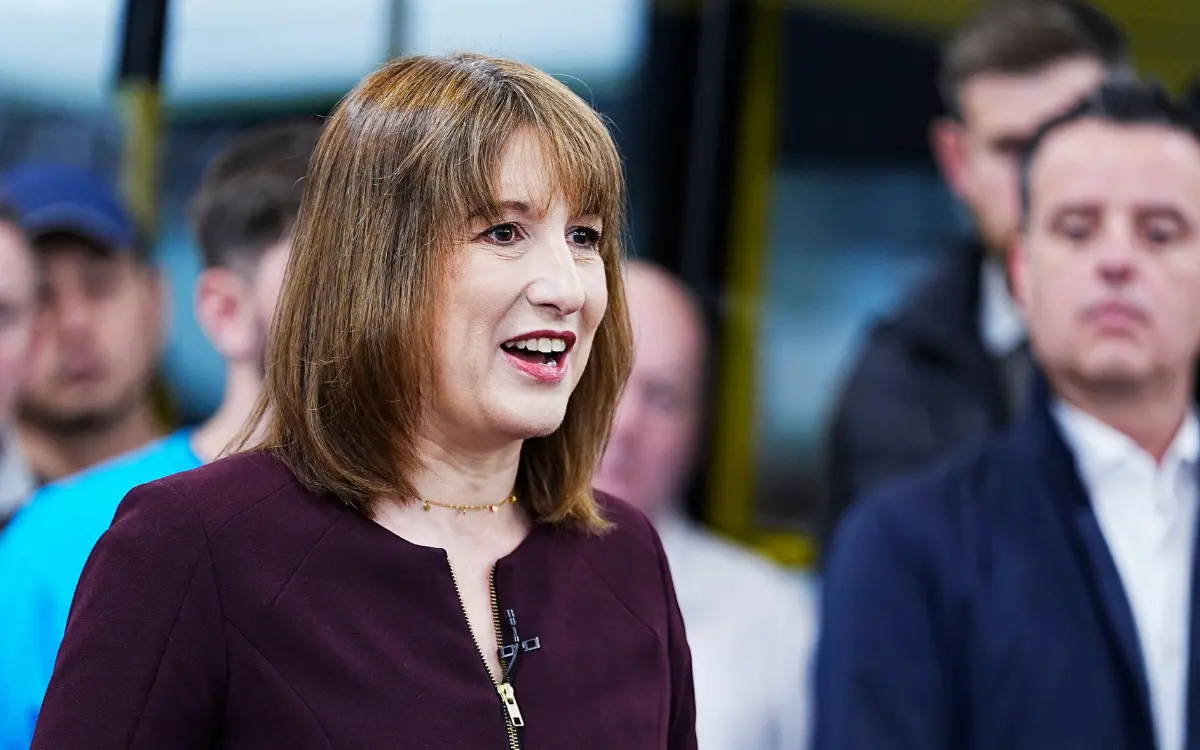UK (Parliament Politics Magazine) – Chancellor Rachel Reeves hints at potential tax hikes and spending cuts in her budget to tackle a £30bn fiscal black hole and economic pressures.
As reported by Sky News, Rachel Reeves is considering higher taxes and spending cuts to address the fiscal gap in the upcoming budget.
Rachel Reeves’ views on tax and spending plans
During an interview, when asked how she would manage the 26 November budget, Rachel Reeves responded, “Of course, we’re looking at tax and spending as well.”
She revealed the first draft of the OBR report on 3 October, highlighting the scale of the fiscal black hole she must address.
In past interviews, Ms Reeves never publicly confirmed tax increases, avoiding the topic entirely.
When asked if the British economy faces a “doom loop” of yearly tax rises to cover recurring deficits, she appeared to acknowledge the challenge.
Ms Reeves responded to questions on preventing the economy from falling into a doom loop, insisting, “Nobody wants that cycle to end more than I do.”
The chancellor reaffirmed her aim to grow the economy and, after repeated questioning, avoided the term “doom loop,” noting the UK had the fastest-growing economy in the G7 during the first half of the year.
She warned that ongoing challenges make it crucial to restore fiscal balance.
Ms Reeves said,
“I was really clear during the general election campaign – and we discussed this many times – that I would always make sure the numbers add up.”
She added,
“Challenges are being thrown our way – whether that is the geopolitical uncertainties, the conflicts around the world, the increased tariffs and barriers to trade. And now this (OBR) review is looking at how productive our economy has been in the past and then projecting that forward.”
The chancellor said that fiscal rules, requiring day-to-day spending to rely on taxation from 2029-30, were not negotiable, making tax increases all but unavoidable.
Ms Reeves stated,
“I won’t duck those challenges. Of course, we’re looking at tax and spending as well, but the numbers will always add up with me as chancellor because we saw just three years ago what happens when a government, where the Conservatives, lost control of the public finances: inflation and interest rates went through the roof.”
The chancellor blamed Brexit, austerity measures, and former Prime Minister Liz Truss’s mini-budget for the scale of the budget shortfall she faces.
The move could spark tension with Labour voters, as nearly one in five Leave supporters backed the party in the last election, contributing to its landslide win.
Ms Reeves said,
“Austerity, Brexit, and the ongoing impact of Liz Truss’s mini-budget, all of those things have weighed heavily on the UK economy.”
She added,
“Already, people thought that the UK economy would be 4% smaller because of Brexit. Now, of course, we are undoing some of that damage by the deal that we did with the EU earlier this year on food and farming, goods moving between us and the continent, on energy and electricity trading, on an ambitious youth mobility scheme, but there is no doubting that the impact of Brexit is severe and long-lasting.”
What do IMF growth projections mean for the UK budget?
Rachel Reeves faces the task of filling a £30bn gap in the budget, after revisions to winter fuel and welfare policies and an Office for Budget Responsibility productivity downgrade.
According to the IMF, UK growth is expected at 1.3% this year, up slightly, but next year’s forecast was lowered by 0.1%, also to 1.3%.
UK growth is down 0.4 percentage points from last autumn’s IMF forecast, with 1.3% GDP set to be the second-fastest in the G7, behind the US.
Ms Reeves reached Washington for the yearly IMF and World Bank conference.
What did the IFS say about Rachel Reeves’ budget plans?
The Institute for Fiscal Studies warned Rachel Reeves must avoid a “half-baked dash for revenue,” or she could harm economic growth while closing next month’s budget gap.
The think tank warned the chancellor risks “unnecessary economic damage” if she combines unrelated tax measures to close the budget shortfall.
The IFS said,
“A budget focused purely on the politics could prove considerably worse on the economics.”
The thinktank report stated,
“Employer [national insurance contributions] could be levied in full on all employer pension contributions, and replaced with a 10% subsidy on all employer pension contributions. This would raise around £6bn a year.”
It added,
“In 2029–30 terms, a corporation tax gap of that size would represent more than £24bn of forgone revenue; just returning the gap to 2017–18 levels could raise more than £10bn.”
What did Isaac Delestre say about Rachel Reeves’ budget?
Isaac Delestre, a research economist at IFS, stated,
“Revenue-raising seems likely to be a major goal of the coming budget. But if Rachel Reeves limits her ambition to collecting more revenue, she will have fallen short.”
He added,
“Almost any package of tax rises is likely to weigh on growth, but by tackling some of the inefficiency and unfairness in our existing tax system, the chancellor could limit the economic damage. The last thing we need in November is directionless tinkering and half-baked fixes.”
UK’s 2025 Budget
The 2025 UK Budget, set for November 26, focuses on investment, reform, and inclusive growth. Tax changes include income tax, CGT, inheritance tax, and property taxes.
Plans include abolishing non-domicile status and applying VAT to private schools. The Chancellor aims to raise around £30bn through targeted tax measures.

